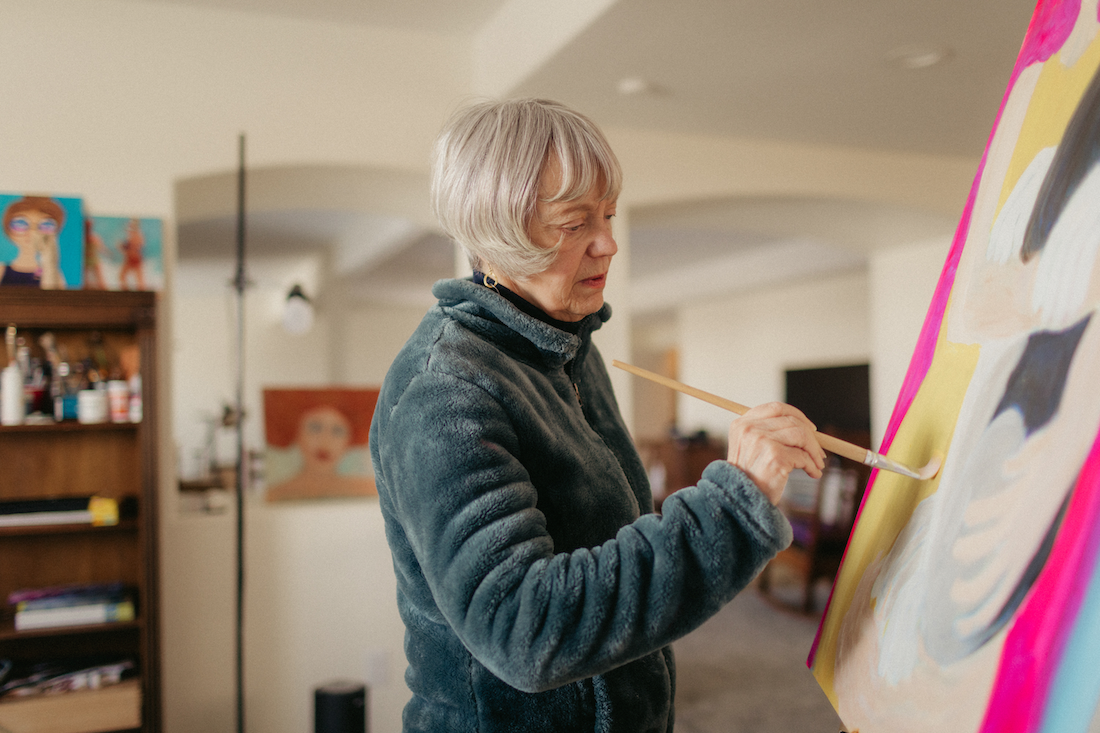

Rebeecca Chopp’s book, Still Me: Accepting Alzheimer’s Without Losing Yourself, from MFF Publishing, became an Amazon best seller during the pre-sale period. The subject is so important for patients, caregivers, medical professionals and policy makers. We talked with Rebecca while she was in the process of writing the book.
After I came to terms with the devastating news that I had Alzheimer’s and that I would have to retire, I began to do a lot of research on the disease. I became aware that a breakthrough was happening in terms of research into lifestyle interventions and pharmacological treatments. I also became aware of the deep stigma society has about Alzheimer’s—that I shared—as a form of madness and quick death.
I became an Alzheimer’s advocate. I worked against the stigma, promoted research and shared lifestyle interventions, including lots of exercise, the MIND diet, creativity and social engagement. I wanted to encourage others with Alzheimer’s to stay active, to lift their voices and to give back to their families and their communities.
At one point, my son, Nate, told me I should write a book about how I was handling my Alzheimer’s. He told me to write it so he and everyone could read it. Others had mentioned the notion of writing a book to me, but that particular day as Nate and I hiked in the mountains, I decided to do so!
Being intimate on paper. I wanted to share my struggles, my deepest thoughts and my despair. I also wanted to explore my hope, my courage and my exploration. I wanted to use my story to educate, but I did not want to be sappy. Finding the right voice to balance openness without excessive sappiness was a struggle.
I learned a lot about myself. I learned how I drew upon my life experiences to be able to address my experience with the disease. For instance, as an administrator I knew how to reframe problems, so I drew upon that to reframe some of the challenges in battling this disease. I learned that battling this disease takes courage, and I discovered I had long experienced the spiritual courage of others as an inspiration. I applied the discipline I learned from my father, and used in my career, to fuel my refusal to surrender to this disease.
I learned that even though I was the same person, I had reinvented myself. I was more about “being” less about “doing.” I was an artist and no longer an organizer. I learned to avoid toxic people, draw wonderful boundaries and take care of my energy levels physically, emotionally and spiritually.
Learn all you can about this disease. Knowledge is power. Engage in serious lifestyle modifications.
Identify what you enjoy in exercise: biking, hiking, kickboxing. It helps your brain, body and soul.
Pick up some creative activity: painting, gardening, woodworking. Your brain gets stretched and flexible and your soul will sing.
Make new friends and keep the old, when you can. Some folks, because of their own biases, won’t keep up your friendships, but some will. And there are new friends to be made.
Educate yourself about Alzheimer’s. Make sure all the legal and financial affairs are in order.
Strive to be an optimistic realist about your loved one.
Sometimes caregivers are in denial while others assume too quickly than their loved one can’t do things. Remember this disease is unique to each individual. One person may stop driving, but can read. Another can read, but can’t drive.
Get support. And refuse to surrender until you must!
Hope that one can live with joy and that treatment is available for many.
Education about the tools to survive and thrive in the early stages of Alzheimer’s, and, possibly, to delay the quick progression of symptoms.
Stories of encouragement, spiritual tips and humor—as well as tears—to help along the journey.